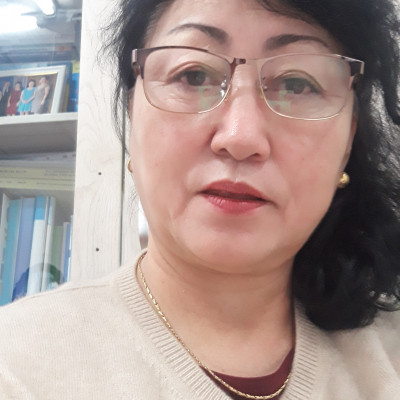Schedule Go Compact (displays all)
You can use Quick Lookup to quickly find sessions. But best is to use the LIVE SCHEDULE during the conference itself.
Please note
This search only includes sessions starting on 1st May [Asia/Seoul]. It does not include asynchronous sessions.
Morning Coffee & Socializing #3162
Start your day with new friends and familiar faces! Grab your favorite refreshment and join us for a relaxed morning social before the sessions begin.
Multilingual Learners: Why Do We Need to Use the Right Terminology? #2905
Over the last two decades, the United States has increased their population of K-12 students for whom English is not their first language. Many educators and administrators have referred to these students as English language learners (ELLs), English as a Second Language Learners (ESL), and/or Limited English proficient students (LEPs). However, based on the terminology, these descriptions are misrepresentations. I argue that students who speak more languages than just English or students who speak their native language but are not yet fluent in English should be referred to by educators as Multilingual Learners (MLs). Using the term ELLs has implied misconceptions of students’ equity and can lead to misrepresentation in the classroom. Through this dialog in this conference, I would like to converse about how other scholars think about K-12 students who speak more than one language and create support for Multilanguage Learners by using the correct terminology globally.
Taking and Making it Personal: Life Writing in Adult ESL Instruction #2903
Deficiency-oriented attitudes are still common occurrences despite emphasis on linguistic and cultural diversity. Promoting inclusivity in learning, Herrera (2016) proposes “biography-driven instruction” emphasizing the power of students’ assets. Though her work is intended for young learners’ biliteracy, I argue the tenets can be used as framework for more equitable adult ESL instruction to build off of learners’ “funds of knowledge” (Moll et al, 1992). In this theoretical paper, I detail an approach I call “autobiography driven instruction” where L2 writing instruction can foster inclusivity through life writing by acknowledging diverse linguistic and cultural backgrounds as assets, drawing from rich lived experiences and tapping into multi-competencies. In doing so, I draw from life writing scholarship, give practical examples in using a wide range of life writing genres, and emphasize how it can help often-underrepresented students like L2 learners “position themselves at the center of scholarly discourse rather than at the edges” (Viray, 2018).
An Ecolinguistics Approach to Education #2805
Schools play a vital role in shaping students’ learning and beliefs. In light of the ecological issues facing our world today, a more ecojustice-focused approach to education is vital. The theoretical framework of ecolinguistics (Stibbe, 2020) provides a useful tool for students to critically analyze the language of the texts they encounter in everyday life, school, and the media, in order to determine their underlying “story” and impact from an ecological perspective. This presentation will discuss the potential benefits ecolinguistics can offer to educators and students, and provide examples how to incorporate it into classroom lessons through linguistic analysis of school textbooks, media sources, and modern advertising.
Synchronous Session Playlist #3218
This playlist includes a majority of the sessions presented synchronously at the conference. Ticketed participants can view the videos from April 29-May 31.
You can also access individual video links on each session's page, collected here: https://kotesol2022.edzil.la/session-marked/is-asynchronous/showcase
The Effect of Anxiety on SLA Through Double Case Study #2990
Anxiety has long been known to impact the processes of second language acquisition in salient ways (Horwitz, Horwitz & Cope, 1986; Dörnyei & Ryan, 2015). Anxiety is clearly one of the most important emotional issues that face L2 learners, and research is needed to understand its impact. The current study sought to investigate 2 Japanese university students’ emotive states through language learner diaries and semi-structured interviews. The duration of the study is one semester (5-6 weeks) for each participant, and the research specifically examines the influence of anxiety on the participants’ language learning experiences, the influence of key persons, and their overseas experiences. The results revealed that some key factors such as adequate comprehension and frequent interaction with foreigners were necessary to overcome their language learning anxiety. Attendees to the presentation will be able to gain insights into both positive and negative factors that can affect anxiety for L2 learners.
Test Validation Issues in Remote L2 Assessment #2675
With the coronavirus pandemic that began in early 2020, there has come a heightened need for remote, “at-home” assessment of L2 ability. Yet for the use of online L2 test methods to succeed in terms of validity (Messick, 1989; Kane, 2006; Chapelle, 2012), it is necessary to review and modify theoretical constructs undergirding emergent assessments. Aiming to offer workable test-development guidelines during a pandemic that has challenged the well-being of L2 learners and TESOL professionals worldwide, this paper will analyze a number of models and frameworks of L2 ability (e.g., Canale and Swain, 1980; Bachman and Palmer, 1996; Celce-Murcia, Dornyei, and Thurrell, 1995; Hall et al., 2011; Pekarek Doehler, 2018), offering critical appraisals of their usefulness vis-à-vis both validation principles and practical constraints of online assessment. Analyses will be complemented by a qualitative examination of interactive data from an online version of a test of L2 oral pragmatics undergoing development.
Making Friends with Machine Translation: A Hands-On Approach #2758
As Susan Jones, a translation teacher at Kobe College, put it: machine translation (MT) is "here to stay." As technology improves, it is becoming harder for teachers to detect it or to prevent it in student-generated texts. The tendency for teachers to resist MT may come from a fear that learning is minimal when students unquestioningly trust MT output. This presentation proposes helping our students work with MT in order to benefit their learning as well as their writing. In this workshop, participants will first experience different types of MT apps and discuss the differences. We will then consider the limitations of MT with respect to cultural differences and new or specialized terminology. Finally, we will discuss ways to help students help themselves in class. As time allows, the audience will have the chance to bring their own texts to be translated and discussed.
The Impact of ESP on Student Development #2666
Partner Session (ELTAM)
The field of English for Specific Purposes (ESP) addresses the communicative needs and practices of particular professional or occupational groups. The study examined the potential for influencing student development through the ESP-310, a special English course at the School of Business Administration and Humanities at the Mongolian University of Science and Technology. The study identifies the learning environment, teacher-student relationships, teaching materials, and teaching methods as important factors in student development. In addition, a survey of students who took the course was conducted to consolidate the results. This study shows that business English can have a positive impact on student development.
An Approach to Teaching a TOEIC-Based Textbook Class in the Remote Learning Context #2686
Teaching classes online has enormous benefit, though it comes with challenges. One important challenge includes how educators can implement assessment items for students in assorted and remote locations. In the case of final examinations, how can educators do so while maintaining test reliability? Using one well-known learning management system, and using a TOEIC-preparation course as a model, this presentation will outline an approach to effectively administering end-of-term examinations. After having formulated the appropriate assessment items, educators are encouraged to split examinations into meanable but separate parts specifically for online delivery. Educators must make use of question-order randomization and limit access times of their students. Importantly, educators must generate backup duplicates of the examinations in advance, backups that may be executed immediately as needed. As will be demonstrated, whether synchronous or asynchronous, observing such procedures and guidelines will ensure that both teachers and students are satisfied with the online examination experience.
MA and PhD Perspectives from University of Birmingham Students #3096
In this 50-minute interactive panel discussion, 2 MA graduates and a current PhD student will share their perspectives and answer questions related to: being distance based graduate students. We will share our journeys to becoming students; along with tips, suggestions, and workarounds for successful learning and research during Covid. We will also discuss if attending graduate school is the right choice (hint: it's not for everyone and there's some good reasons for/against). We will also explain some of the actions we've taken to understand and further Diversity, Equity, Inclusion, and opportunities for Open Scholarship. We welcome questions from attendees and look forward to creating a welcoming session with thought-provoking takeaways for attendees.
Post-conference Feedback Survey #3165
Please let us know what you thought of the 2022 KOTESOL International Conference! Your input is valuable to us; your thoughts and opinions will help us continue to improve our conferences in the future.
Fulfilling a Dream: Two South Korean Students in Japan #2792
TESOL has been criticized as “traditionally [giving] more attention to the process of [language] acquisition than to the flesh-and-blood individuals who are doing the learning” (Kramsch, 2009, p. 2). At times, TESOL has also been labeled as suffering from monolingual bias (May, 2013; Meier & Conteh, 2014). The current study aims to contribute to the research on flesh-and-blood learners' translingual, transnational identities. The participants are two South Korean female university students studying in Japan. They use English, Japanese, and Korean regularly and are learning other languages as well. Having also lived in English-speaking countries, the participants have a transnational identity, which results in unique perspectives on their university life in Japan. The presentation focuses on their experiences in the classroom in Japan. I investigate how the students’ investment in language learning (Norton, 1995, 2013) shapes their experience with education and language use in Japan as an Expanding Circle country.











